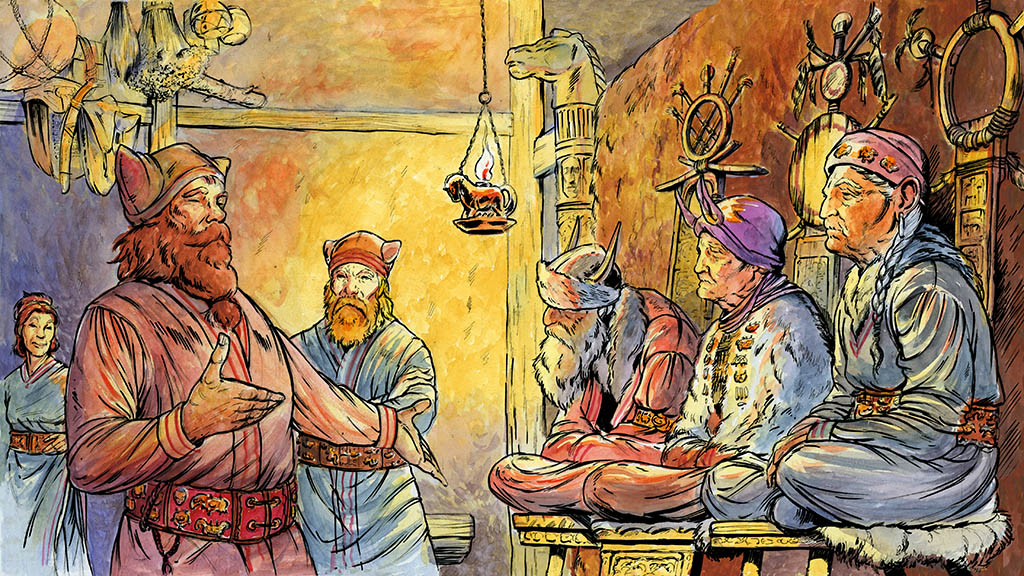There was recently some discussion about legal cases on our Discord, so I thought I’d share the legal system I wrote up. The idea was to have a coherent system that was different from Heort’s Law, as shown in King of Dragon Pass.
Originally, we were governed by Yelm’s Law. But we had to leave the Law Tablets in Nivorah. Hyalor gave us a new set of laws that we could apply outside the city, and while on the move. The law makes sure you and your kin will be compensated for aggression or theft. Crimes like murder, defamation, and injury have a customary payment in horses or cows, depending on the level of harm. Grazing on someone else’s pasture is a form of theft, and also has a customary compensation. Theft is usually made right by paying an equal value. If the compensation is significant, like for a killing, it may be paid over time. If someone is unable to pay the compensation, then his family will pay. They are entitled to remind the wrongdoer how foolish he was, and will keep an eye on him so they don’t have to pay again. If his family gets tired of paying for a repeat offender, they can disown him. Unless another family wishes to adopt him, he is an outlaw, no longer a member of the clan. We expect our leaders to be examples. If a priest or a member of the clan circle violates the law, he pays double compensation. When the law is broken, one of the sides sends a delegation to the other, to try to keep the dispute from spreading. They will arrange for a court to settle the case. This consists of one judge from each side, usually elders who remember past cases. The aggrieved family will investigate the incident before presenting to the court. The court is held away from the community, to avoid bias. Both sides can have advocates, who are chosen for their speaking and negotiating skills, and their good reputation. Once the judges come to a decision, the parties have the opportunity to seek a new hearing with different judges plus a neutral judge appointed by the chief. If they cannot agree to that decision, they may appeal to the clan chief. Hyalor’s Law also applies when a dispute is between members of two clans. But we have no king to appeal to, and sometimes we have no choice but to balance uncompensated deaths by taking a life from another clan. We would make a formal declaration of feud, and would never do anything but restore balance.
This is inspired by xeer, from Somalia, which works in the absence of a central authority — perfect for the migration period, which was Hyalor’s main concern. The fact that compensation is central is also convenient, since it connects to the herds and goods that you’re worried about at the clan level. The clan chief’s involvement in appeals is presumably a relic of the more hierarchical Yelmic law of Nivorah.

The game doesn’t portray the full workings of Hyalor’s Law, since the idea is to handle disputes below the clan level. For example, the illustration is clearly of an appeal, since there are three judges (and the parties have involved the clan chief in their dispute). Presumably there are legal cases all the time (probably more often when clan mood is low!) but since your focus is the clan as a whole, you don’t need to worry about most of them. We only present the ones with interesting clan-level consequences.
Finally, the above are the notes that informed “Ride Like the Wind.” Generations later in “Lights Going Out” your clan may be using a different legal code.